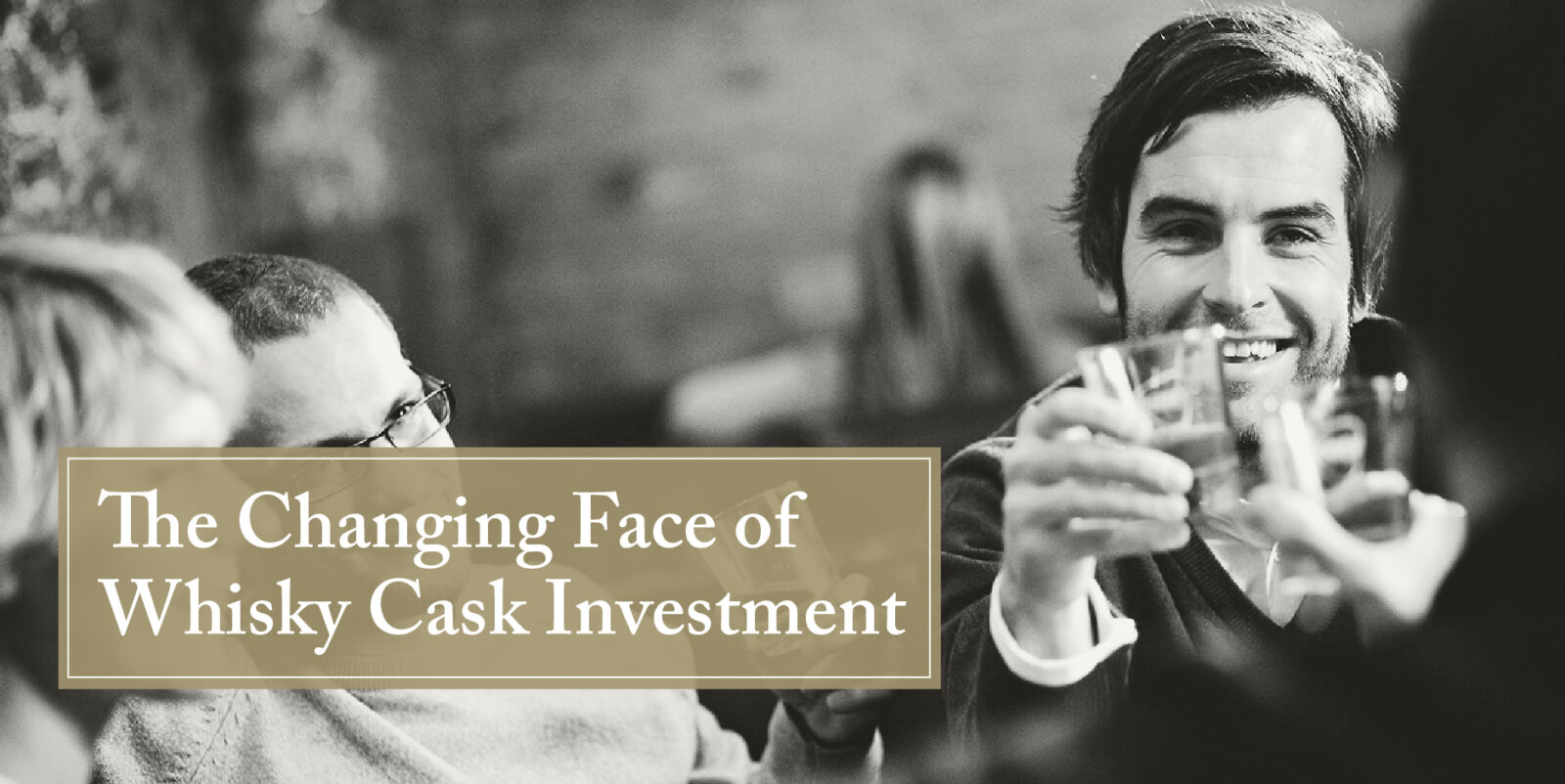Investors planning their strategies for a post-pandemic future are facing mixed messages about the true state of the economy. Some short-term headwinds have emerged, with the pressures of inflation and rising costs becoming particular challenges that threaten to become hurricanes down the line.
On the other hand, there is more money in the pockets of private individuals than ever before, with current personal savings rates at elevated levels as households put away excess cash which would have been used for holidays or entertainment. The stock market is also ending the year on a positive note, although the performance across specific sectors has been highly uneven due to the effects of the pandemic.
Multi-asset class investing will also become popular as investors look for ways to minimize risk and maximize returns
So, where does all this leave investors looking to protect and grow their wealth? And how has this impacted the type of investors who are turning to whisky casks as a means to strengthen their portfolios?
One thing that all economists seem to agree on is that investment trends that were emerging before the pandemic are now accelerating. Among these are an influx of younger investors into the market (often using apps or other tools for retail investment), an increasing focus on portfolio diversification and an interest in alternative investments.
Despite the spectre of inflation, interest rates remain historically low, which makes tangible assets particularly attractive to investors entering the market or looking to diversify their existing portfolios.
When investing in gold or silver, art or fine wine you are buying something with a physical form and a value determined by the market. However, talking about ‘tangible’ or ‘alternative’ assets as single categories can, in itself, be misleading as every asset comes with its own specific characteristics, risks and opportunities.
The value of art, for example, is not intrinsic, it is based on collective intentionality and subjective factors. This confers significant risk to the investment, unless an investor has the funds needed to purchase the work of an established artist.
Silver and, especially, gold have always been a refuge for investors in times of economic uncertainty. However, the value of gold is closely tied to movements in the US dollar. If the dollar goes up against other currencies, the value of gold can fluctuate significantly, which means that gold is often not the best hedge against economic shocks.
Rare wine has been a popular choice as an alternative investment for decades, but also comes with its own risks, including the growing problem of counterfeiting alongside a lack of adequate regulation of the market.
In this context, it is unsurprising that the market in whisky casks is becoming increasingly attractive to investors looking for safer havens for their money. Whisky casks provide the benefits of owning a tangible asset, including some protection against unstable market forces, while also avoiding some of the pitfalls associated with other investments in that category. The double appreciation offered by whisky casks, due to both their scarcity and their steady value increase as the liquid matures in the cask, mean that, in comparison to other tangible assets, the actual performance of whisky casks tends to follow a more stable path.
Compared to other tangible assets, whisky casks also offer a high level of security to investors as they must always be stored in a government bonded warehouse and are carefully traced to ensure authenticity. This provides investors with the peace of mind of knowing that the provenance of their asset is verifiable and the protection of it throughout its lifetime is guaranteed.
According to the Mid-Year Whisky Cask Market Overview, millennial whisky cask investors grew by 30%
As interest grows in tangibles and a new generation of investors enters the market, perhaps it’s unsurprising that the profile of whisky cask investors is changing. With a shift away from more traditional forms of investment, it seems that younger investors are looking to whisky casks as an opportunity to grow their portfolios over the medium and long term.
Until recently, the demographic of buyers has tended to follow the archetype for typical whisky drinkers. In 2020, men made up an overwhelming 91.2% of buyers and 68.1% were older than 40. However, there are signs that the market is now opening to a new and diversified range of cask owners. According to the 2021 Mid-Year Whisky Cask Market Overview, Millennials (investors between the ages of 25-40) made up only 20% of buyers in 2019, but this now risen to to 36.0% in 2021. Women are also now represented in greater numbers: 7.5% of total buyers in 2021 identified as female, up from 4.4% in 2019.
The Whisky Cask Market Report also showed a huge increase in demand for casks of younger ages. Casks of a younger age are an easier entry point for investors, so the growth for this portion of this market indicates that more new investors are discovering private cask ownership. It also suggests that younger investors, logically with more time to plan ahead, see whisky casks as a great investment opportunity for the long term. Additionally, lower cost investments such as these could also play a key part in a more diversified portfolio.
Portfolio diversification helps offset exposure in any single position, and helps investors protect themselves against swings across different sectors
As any investment advisor will tell you, diversification is the key to stability and peace of mind for investors. It is also the best way to gain returns that aren’t tied to the potentially unstable bond or stock markets.
The ‘don’t put all your eggs in one basket’ approach to investing is fundamentally sensible when uncertainty seems to be baked into the economic horizon. So, when considering which assets to consider as a means to diversify an investment portfolio, it’s no surprise that whisky casks are becoming an increasingly popular option.

